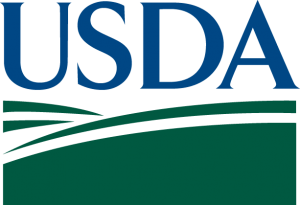 The U.S. Food and Drug Administration announced an unprecedented advancement in foodborne illness prevention through the finalization of a traceability rule to more effectively trace contaminated food through the food supply, whether sourced in the United States or abroad.
The U.S. Food and Drug Administration announced an unprecedented advancement in foodborne illness prevention through the finalization of a traceability rule to more effectively trace contaminated food through the food supply, whether sourced in the United States or abroad.
The final rule establishes additional traceability recordkeeping requirements for those that manufacture, process, pack or hold certain foods, including fresh leafy greens, nut butters, fresh-cut fruits and vegetables and ready-to-eat deli salads. In collaboration with industry, the FDA will be able to more rapidly and effectively identify the origin and route of travel of certain contaminated foods to prevent or mitigate foodborne illness outbreaks, address credible threats of serious adverse health consequences or death, and minimize overly broad advisories or recalls that implicate unaffected food products.
“This rule lays the foundation for even greater end-to-end food traceability across the food system that we’re working on as part of the New Era of Smarter Food Safety initiative,” said Frank Yiannas, the FDA’s deputy commissioner for food policy and response. “This standardized, data-driven approach to traceability recordkeeping helps create a harmonized, universal language of food traceability that will help pave the way for industry to adopt and leverage more digital, interoperable and tech-enabled traceability systems both in the near term and the future.”
Foods subject to the final rule requirements appear on the Food Traceability List. To determine which foods should be included on the FTL, the FDA developed a risk-ranking model for food tracing based on the factors that Congress identified in Section 204 of the FDA Food Safety Modernization Act. These foods include fresh leafy greens, melons, peppers, sprouts, herbs, tomatoes, cucumbers, and tropical tree fruits, as well as shell eggs, nut butters, fresh-cut fruits and vegetables, ready-to-eat deli salads, cheeses (other than hard cheese), finfish and crustaceans.
The FDA released a proposed rule in 2020 and held a public comment period where comments were received from food producers and other stakeholders through early 2021. In response, the agency has made several changes to the final rule so that it better aligns with current industry approaches to food traceability and harmonizes points in the supply chain where records must be maintained.
Key features of the final rule include:
- Critical Tracking Events: at specific points in the supply chain – such as harvesting, cooling, initial packing, receiving, transforming, and shipping FTL foods – records containing Key Data Elements are required.
- Traceability Plan: information essential to help regulators understand an entity’s traceability program. These include a description of the procedures used to maintain required records, descriptions of procedures used to identify foods on the FTL, descriptions of how traceability lot codes are assigned, a point of contact for questions regarding the traceability plan and a farm map for those that grow or raise a food on the FTL.
- Additional Requirements: maintenance of records as original paper or electronic records, or true copies; providing requested records to the FDA within 24 hours of a request (or within a reasonable time to which the FDA has agreed); and providing records in an electronic sortable spreadsheet when necessary to assist the FDA during an outbreak, recall or other threat to public health.
Foodborne illness affects millions of Americans each year. Today’s action progresses the agency’s commitment to better protect the public by ensuring a safe and wholesome food supply. Enhanced recordkeeping requirements for FTL foods will allow for faster identification and rapid removal of potentially contaminated food from the market, ultimately resulting in fewer foodborne illnesses and deaths.
For news of interest to the specialty food industry, subscribe to Gourmet News.
 The Thanksgiving holiday brings many things: the crisp fall air, early morning turkey trots, delicious food and of course, those uncomfortable conversations with extended family members that you haven’t seen in a while. To bring comfort to every facet of Thanksgiving this year, including your conversations and waistband, Stove Top, a Kraft Heinz Company brand, is excited to bring back Stuffing Pants to celebrate its 50th anniversary—because everyone knows when it comes to Thanksgiving, the stretchier, the better.
The Thanksgiving holiday brings many things: the crisp fall air, early morning turkey trots, delicious food and of course, those uncomfortable conversations with extended family members that you haven’t seen in a while. To bring comfort to every facet of Thanksgiving this year, including your conversations and waistband, Stove Top, a Kraft Heinz Company brand, is excited to bring back Stuffing Pants to celebrate its 50th anniversary—because everyone knows when it comes to Thanksgiving, the stretchier, the better.
